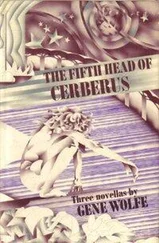I went into the corridor and examined the floor minutely for marks indicating furniture. I looked for hooks or nails driven into the walls, pushing aside the coarse old tapestries. Craning my neck, I searched the ceiling. Then, after an hour, I looked at the door itself and saw what I had not seen in the thousands of times I had passed through it: that like all the doors in this house, which is very old, it had a massive frame of wooden slabs, and that one of these, forming the lintel, protruded enough from the wall to make a narrow shelf above the door.
I pushed my chair into the hall and stood on the seat. The shelf was thick with dust in which lay forty-seven of my brother’s pipes and a wonderful miscellany of other small objects. Objects many of which I recalled, but some of which still fail to summon any flicker of response from the recesses of my mind . . .
The small blue egg of a songbird, speckled with brown. I suppose the bird must have nested in the vine outside our window, and that David or I despoiled the nest only to be robbed ourselves by Mr. Million. But I do not recall the incident.
And there is a (broken) puzzle made of the bronzed viscera of some small animal, and—wonderfully evocative—one of those large and fancifully decorated keys, sold annually, which during the year of its currency will admit the possessor to certain rooms of the city library after hours. Mr. Million, I suppose, must have confiscated it when he found it, after expiration, doing duty as a toy, but what memories!
My father had his own library, now in my possession, but we were forbidden to go there. I have a dim memory of standing—at how early an age I cannot say—before that huge carved door. Of seeing it swing back, and the crippled monkey on my father’s shoulder pressing itself against his hawk face, with the black scarf and scarlet dressing gown beneath and the rows and rows of shabby books and notebooks behind them, and the sick-sweet smell of formaldehyde coming from the laboratory beyond the sliding mirror.
I do not remember what he said or whether it had been I or another who had knocked, but I do recall that after the door had closed, a woman in pink whom I thought very pretty stooped to bring her face to the level of my own and assured me that my father had written all the books I had just seen, and that I doubted it not at all.
* * *
My brother and I, as I have said, were forbidden this room, but when we were a little older Mr. Million used to take us, about twice a week, on expeditions to the city library. These were very nearly the only times we were allowed to leave the house, and since our tutor disliked curling the jointed length of his metal modules into a hire cart and no sedan chair would have withstood his weight or contained his bulk, these forays were made on foot.
For a long time this route to the library was the only part of the city I knew. Three blocks down Saltimbanque Street where our house stood, right at the rue d’Asticot to the slave market, and a block beyond that to the library. A child, not knowing what is extraordinary and what commonplace, usually lights midway between the two, finds interest in incidents adults consider beneath notice, and calmly accepts the most improbable occurrences. My brother and I were fascinated by the spurious antiques and bad bargains of the rue d’Asticot, but often bored when Mr. Million insisted on stopping for an hour at the slave market.
It was not a large one, Port-Mimizon not being a center of the trade, and the auctioneers and their merchandise were frequently on a most friendly basis—having met several times previously as a succession of owners discovered the same fault. Mr. Million never bid, but watched the bidding, motionless, while we kicked our heels and munched the fried bread he had bought at a stall for us. There were sedan chairmen, their legs knotted with muscle, and simpering bath attendants; fighting slaves in chains, with eyes dulled by drugs or blazing with imbecile ferocity; cooks, house servants, a hundred others—yet David and I used to beg to be allowed to proceed alone to the library.
This library was a wastefully large building which had held government offices in the old French-speaking days. The park in which it had once stood had died of petty corruption, and the library now rose from a clutter of shops and tenements. A narrow thoroughfare led to the main doors, and once we were inside, the squalor of the neighborhood vanished, replaced by a kind of peeling grandeur. The main desk was directly beneath the dome, and this dome, drawing up with it a spiraling walkway lined with the library’s main collection, floated five hundred feet in the air: a stony sky whose least chip falling might kill one of the librarians on the spot.
While Mr. Million browsed his way majestically up the helix, David and I raced ahead until we were several full turns in advance and could do what we liked. When I was still quite young it would often occur to me that since my father had written (on the testimony of the lady in pink) a roomful of books, some of them should be here; and I would climb resolutely until I had almost reached the dome, and there rummage. Because the librarians were very lax about reshelving, there seemed always a possibility of finding what I had failed to find before. The shelves towered far above my head, but when I felt myself unobserved I climbed them like ladders, stepping on books when there was no room on the shelves themselves for the square toes of my small brown shoes, and occasionally kicking books to the floor where they remained until our next visit and beyond, evidence of the staff’s reluctance to climb that long, coiled slope.
The upper shelves were, if anything, in worse disorder than those more conveniently located, and one glorious day when I attained the highest of all I found occupying that lofty, dusty position (besides a misplaced astronautics text, The Mile-Long Spaceship , by some German) only a lorn copy of Monday or Tuesday leaning against a book about the assassination of Trotsky, and a crumbling volume of Vernor Vinge’s short stories that owed its presence there, or so I suspect, to some long-dead librarian’s mistaking the faded V. Vinge on the spine for Winge .
I never found any books of my father’s, but I did not regret the long climbs to the top of the dome. If David had come with me, we raced up together, up and down the sloping floor—or peered over the rail at Mr. Million’s slow progress while we debated the feasibility of putting an end to him with one cast of some ponderous work. If David preferred to pursue interests of his own farther down I ascended to the very top where the cap of the dome curved right over my head; and there, from a rusted iron catwalk not much wider than one of the shelves I had been climbing (and I suspect not nearly so strong), opened in turn each of a circle of tiny piercings—piercings in a wall of iron, but so shallow a wall that when I had slid the corroded cover plates out of the way I could thrust my head through and feel myself truly outside, with the wind and the circling birds and the lime-spotted expanse of the dome curving away beneath me.
To the west, since it was taller than the surrounding houses and marked by the orange trees on the roof, I could make out our house. To the south, the masts of the ships in the harbor, and in clear weather—if it was the right time of day—the whitecaps of the tidal race Sainte Anne drew between the peninsulas called First Finger and Thumb. (And once, as I very well recall, while looking south I saw the great geyser of sunlit water when a starcrosser splashed down.) To east and north spread the city proper, the citadel and the grand market and the forests and mountains beyond.
But sooner or later, whether David had accompanied me or gone off on his own, Mr. Million summoned us. Then we were forced to go with him to one of the wings to visit this or that science collection. This meant books for lessons. My father insisted that we learn biology, anatomy, and chemistry thoroughly, and under Mr. Million’s tutelage learn them we did—he never considering a subject mastered until we could discuss every topic mentioned in every book cataloged under the heading. The life sciences were my own favorites, but David preferred languages, literature, and law, for we got a smattering of these as well as anthropology, cybernetics, and psychology.
Читать дальше










